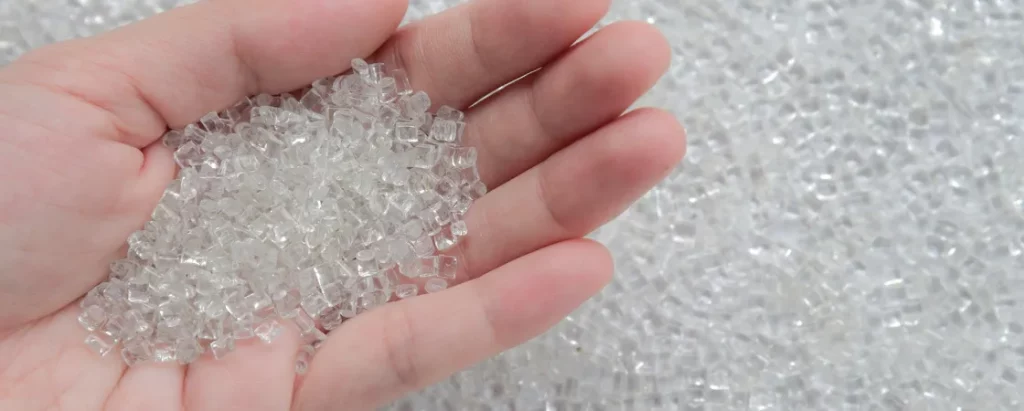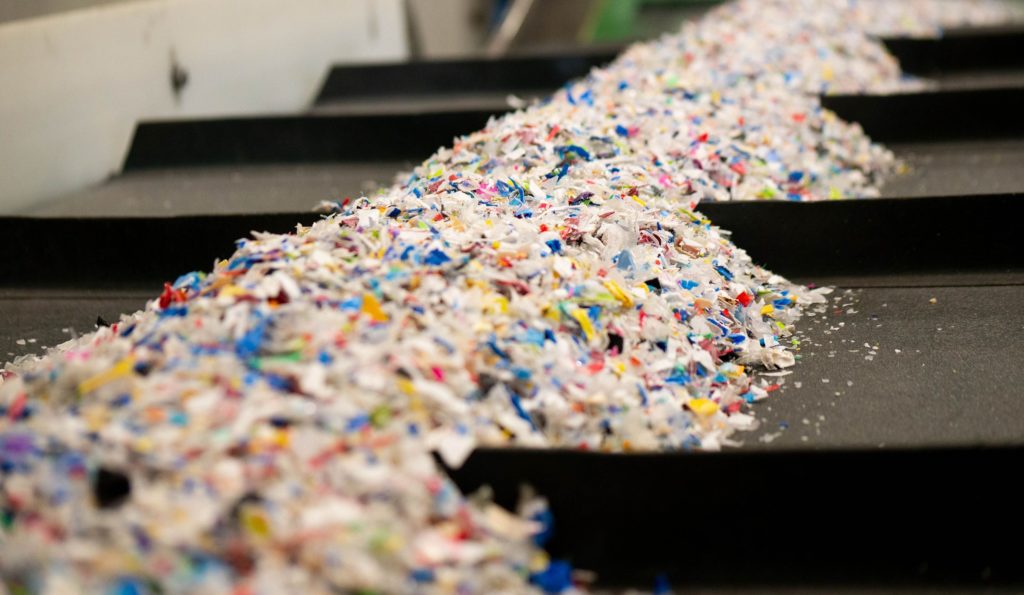In recent years, sustainability has become an integral aspect of industrial packaging, driven by the urgent need to reduce environmental impact and embrace eco-friendly practices. Polypropylene (PP), a versatile plastic commonly used in manufacturing, has gained attention for its recyclability. This blog explores the benefits of using recycled polypropylene in industrial packaging, shedding light on why this practice is not only eco-conscious but also economically advantageous.
What is Recycled Polypropylene?
Polypropylene is a type of thermoplastic polymer widely utilized for its durability, resistance to chemicals, and adaptability. In industrial packaging, PP is often found in the form of woven bags, flexible containers, and other storage solutions that require strength and resilience. Recycled polypropylene (rPP) is created by reprocessing waste or post-consumer PP products, transforming them back into a reusable material without compromising its essential properties.
How Recycled Polypropylene is Produced
Recycled polypropylene is generated through a series of steps: collection, sorting, cleaning, shredding, and finally, reprocessing into pellets or granules. These pellets are then used as raw materials in the production of new PP items, contributing to a closed-loop recycling system. This process significantly reduces waste and lowers the demand for virgin polypropylene, making it an excellent solution for eco-friendly packaging.
Why Choose Recycled Polypropylene for Industrial Packaging?
Using recycled polypropylene in industrial packaging presents numerous advantages, benefiting both the environment and businesses. Here’s a closer look at the benefits.

1. Reduced Environmental Impact
One of the most significant benefits of using recycled polypropylene is the positive environmental impact. The production of virgin PP relies heavily on fossil fuels, leading to carbon emissions that contribute to climate change. By using recycled polypropylene, manufacturers can reduce their carbon footprint and conserve nonrenewable resources.
Decrease in Landfill Waste
Polypropylene products, particularly industrial packaging, contribute to landfill waste due to their long life span and widespread use. Utilizing rPP helps decrease the amount of waste directed to landfills, promoting a circular economy where materials are reused rather than discarded. This approach minimizes the long-term environmental burden of plastic waste.
2. Cost Savings for Manufacturers
Recycled polypropylene offers a cost-effective alternative to virgin materials. Since it requires less energy to produce than new PP, recycled polypropylene is often available at a lower price, making it an attractive option for businesses looking to save on raw material costs. This price difference allows manufacturers to produce quality packaging while cutting down on expenses.
Energy Savings in Production
Producing recycled polypropylene requires up to 88% less energy compared to creating virgin PP. This substantial energy saving not only benefits the environment but also translates into reduced operational costs for manufacturers. Energy-efficient production processes are increasingly essential for industries striving to remain competitive in a market focused on sustainability.
3. Enhanced Brand Image and Market Appeal
Sustainability has become a focal point for consumers, with many customers actively seeking brands committed to reducing their environmental footprint. By integrating recycled polypropylene into packaging, businesses can strengthen their reputation as eco-conscious companies, attracting environmentally aware clients and partners.
Catering to Consumer Demand for Green Practices
Consumers are more informed and aware of environmental issues than ever before. As a result, companies that adopt sustainable practices, such as using recycled materials, stand out as responsible businesses. Adopting recycled polypropylene for packaging aligns with current consumer preferences, increasing customer loyalty and market competitiveness.
Key Applications of Recycled Polypropylene in Industrial Packaging
Recycled polypropylene is versatile and suitable for various industrial applications. Here’s how rPP is commonly used in packaging.
1. Woven Bags and Sacks
Woven PP bags are extensively used in industries like agriculture, construction, and chemicals, where durability and strength are essential. Recycled polypropylene retains the robust properties required for these applications, making it a reliable material for heavy-duty packaging.
Benefits of Using rPP in Woven Bags
Incorporating recycled polypropylene into woven bags ensures these products remain resilient, moisture-resistant, and capable of handling demanding conditions. This makes rPP an ideal choice for businesses looking to balance durability with sustainability.
2. Bulk Packaging Solutions
Flexible Intermediate Bulk Containers (FIBCs), commonly referred to as jumbo bags, are widely used to transport large quantities of materials. Recycled PP can be effectively used to produce these bulk packaging solutions, maintaining the required standards of strength and flexibility.
Ideal for Large-Scale Transportation Needs
Recycled polypropylene in bulk packaging solutions serves industries requiring high-capacity, robust packaging. These recycled-material-based containers are cost-effective and provide the same high performance as those made from virgin polypropylene, ensuring safe, efficient transportation.
3. Customized Packaging for Specific Industries
With advancements in recycling technology, recycled polypropylene can be customized for different packaging needs. For example, rPP can be processed to create packaging solutions that cater to industries with unique storage requirements, such as the food and pharmaceutical sectors.
Safe and Compliant with Industry Standards
Recycled polypropylene can be manufactured to meet regulatory standards, ensuring it remains safe for specialized applications. This versatility allows companies to meet industry standards while supporting sustainable practices.
The Economic and Environmental Advantages of Recycled Polypropylene
In addition to the direct benefits for manufacturers and the environment, using recycled polypropylene contributes to broader economic and ecological advantages.
1. Supporting the Circular Economy
The concept of a circular economy revolves around reducing waste by keeping materials in use for as long as possible. Recycled polypropylene aligns perfectly with this model, as it reintroduces waste materials back into the production cycle. By opting for rPP, companies actively participate in waste reduction and resource conservation.
Positive Impact on Global Plastic Pollution
As global plastic waste continues to grow, recycling efforts like the use of rPP in packaging can make a meaningful difference. Each instance of using recycled polypropylene reduces the demand for new plastic production, contributing to a decrease in overall plastic pollution.
2. Reducing Dependency on Virgin Plastic
Virgin plastic production requires substantial amounts of fossil fuels and releases high levels of carbon emissions. By replacing virgin polypropylene with recycled material, industries can reduce their reliance on finite resources, contributing to a more sustainable supply chain.
Decreasing Carbon Emissions
The production of recycled polypropylene emits significantly fewer greenhouse gases compared to virgin PP. As businesses strive to reduce their carbon footprint, choosing rPP can be an impactful step toward achieving sustainability goals.
3. Facilitating Compliance with Environmental Regulations
Governments and regulatory bodies worldwide are increasingly encouraging businesses to adopt sustainable practices, including the use of recycled materials. Utilizing recycled polypropylene in packaging helps companies meet regulatory standards and maintain compliance, avoiding penalties and aligning with industry expectations.
Preparing for Future Environmental Standards
As regulatory bodies implement stricter environmental policies, businesses that already use sustainable materials like recycled polypropylene will be better prepared to meet evolving requirements. This forward-thinking approach ensures compliance and reduces the risk of future disruptions.
Conclusion: The Way Forward with Recycled Polypropylene
Incorporating recycled polypropylene in industrial packaging offers substantial benefits across environmental, economic, and operational dimensions. It is a practical solution for reducing waste, conserving energy, and creating cost-effective packaging without sacrificing quality or durability.
For companies seeking sustainable growth, choosing recycled polypropylene in packaging is more than a trend—it’s a long-term commitment to environmental responsibility and resource efficiency. As industries move towards a greener future, embracing recycled materials like rPP will continue to play a vital role in shaping sustainable practices and promoting a healthier planet.
By opting for recycled polypropylene, businesses not only support global sustainability efforts but also position themselves as leaders in the eco-friendly movement. Embrace recycled polypropylene in your packaging solutions, and join the movement towards a sustainable and economically viable future.
